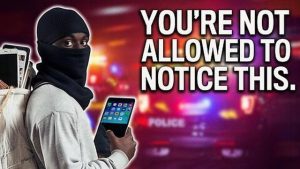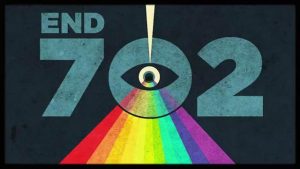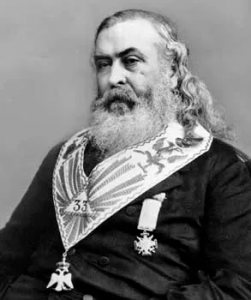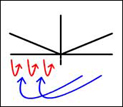“Nicaragua Betrayed” Summary— Chapter 19: A Time for Tears
by Edward Ulrich
News of Interest.TV
February 24, 2011
This chapter explains Anastasio Somoza’s departure from Nicaragua and what happened immediately afterwards. Somoza resigned due to being promised that the Guardia Nacional and Liberal Party would remain intact, but instead those groups were imprisoned and had their property confiscated, with the same happening to many others in Nicaragua. Also described is how Major Pablo Emilio Salazar, known to all people of Nicaragua as the courageous “Comandante Bravo” was captured in Hondouras and then tortured and killed, with the murder being publicly gloated about by the Communist Minister of the Interior for Nicaragua Tomas Borge.
Following are key points from the chapter:
— During the first part of July 1979, Somoza met frequently with United States Ambassador Pezzullo about the status of the Gaurdia Nacional and members of the Liberal party, because both knew that Somoza’s troops had no more ammunition and no more would be coming. First Pezzullo told Somoza that he would have the right to choose the new Chief of the Army, the General Staff and the department commanders. With their agreement that the Guardia Nacional and members of the Liberal party would be protected, Somoza agreed to resign as President of Nicaragua.
— On July 15, 1979, Pezzullo advised Somoza that his choice for the leadership of the Guardia Nacional was not permitted, so Somoza chose Colonel Federico Mejia from a list of pre-approved choices, and then he met with his Cabinet members and then his Army General Staff. Somoza explained to his Cabinet members that his resignation would be the only way for the Gaurdia Nacional to be preserved, so he decided to submit his resignation to Congress who would then select a new President for negotiations with the revolutionary junta. Somoza then met with his Army General Staff and explained that he would resign as President and chief of the Army, and his brother and son would also resign, and they all had to leave Nicaragua. Somoza also explained to the General Staff that they would have a chance to successfully negotiate with the new government to preserve the Gaurdia Nacional.
— From pages 385 - 386:
As I was walking out of that meeting I came face to face with Major Pablo Emilio Salazar, known to all people of Nicaragua as “Comandante Bravo” of the Southern Command. No one could ask for a better combat leader than Bravo. He was fearless, but he knew when to exercise caution. To him, his men always came first and his combat troops would have followed him to the end of the Earth. Ours was an emotional meeting, and it was the last one we would ever have. Bravo said. “Is it true you have to go?” I told him it was true.
Bravo couldn’t understand why I had to leave. Each time he and his men had met the enemy they soundly defeated them. I explained to him that what we were up against was far bigger than all of Nicaragua, and that we had men fighting in the field with no ammunition. Further, I explained even if we could get munitions, we had only a small amount of dollars in reserve. As I talked to Bravo, I thought the total responsibility for the situation in which Nicaragua found herself rested with Jimmy Carter. We had sixteen thousand men who were willing to fight, but they had no ammunition; and we had the loyal support of the people, which even the International Conspiracy could not destroy.
Bravo then looked at me and said: “It’s final; you are really going to leave?” I could only respond it was final. At this point, this brave “man’s man,” and hero in his own right, began weeping. There were no more words for me. I was too choked up to talk. I embraced this gallant man and walked away.
After the revolutionary victory, Bravo and his men made their way by barge to El Salvador. From El Salvador he went to Honduras. It was all over, but the Sandinistas wanted Bravo. A trap was set and he was captured. The Sandinistas could not defeat him on the battlefield, but he was captured under supposedly peaceful conditions and tortured to death— in exactly the same manner that General Perez Vega was killed.
Again, it should be noted that a Sandinista “hit” team captured and tortured to death Comandante Bravo. This was done after the war was over; and this horrible event took place in Honduras. Tomas Borge, the Communist Minister of the Interior for Nicaragua, gloated publicly over this atrocious murder.
Contrary to what Mr. Carter, the U.S. State Department, and the media would have you believe, Borge is a vicious Communist killer. If there is any doubt about that allegation, take note of his speech to a youth rally held in Managua on October 17, 1979. Borge’s entire speech was broadcast on Managua Radio Sandino at 1800 hours GMT, and the speech was monitored.
With reference to the torture death of Comandante Bravo and Borge’s comments about me, his words are as follows:
“... the truth is that the henchman is now seven feet underground. He was the coordinator of the Somozist counter-revolution. ... the truth is that the head of the sector of the counterrevolution has been cut off. The enemies of our people will fall one by one, and sooner or later assassin Anastasio Somoza’s turn will come.”
Borge exemplifies the new Marxist government in Nicaragua. He has patterned his speech, his Communist techniques, and his sadistic behavior after his hero and companion, Fidel Castro.
The media have had this information for some time, and yet, for some reason, Borge remains untouched.
— On July 16, arrangements were being made for those who were to be flown out of Managua, but many lifelong friends and associates of Somoza had to be left behind with many facing serious problems with the new government. Somoza delivered his letter of resignation at 10:00 PM, and the members of Congress had only one day to put their houses in order to prepare to leave Nicaragua forever.
— From page 388 - 389:
Things were hectic at the Hotel Inter-Continental. Members of the Cabinet, the Army General Staff, the retired military department commanders, and members of Congress were all housed in that one hotel and waiting to leave. A movement of this kind takes much coordination, so I put Colonel Linarte in charge of that operation. At 11:00 P.M., he had busses and military escorts parked several blocks from the hotel and ready to move out. At 3:00 A.M. the busses rolled up to the main entrance of the hotel and the entire contingent, with the exception of members of Congress, boarded the busses and headed for the airport.
Shortly before four o’clock on the morning of July 17th, I called my personal staff together for a last farewell. This included the cook, the waiters, and Presidential orderlies. It was a sad and touching moment. I embraced each one of them and once again tears were flowing. I think most of them felt that we would never see each other again.
A car was waiting in front of the bunker, and we took the car to the top of the hill behind the bunker where a helicopter was waiting. As I sat there in the helicopter waiting for liftoff, I felt the emotions of the past few days welling up inside of me. As I took one last look at the lights of Managua, tears started rolling down my cheeks. It wasn’t that I was indulging in self-pity, because my thoughts at that moment were about my country. I felt deeply that all the good work we had accomplished in Nicaragua had simply gone up in smoke, due to conspiring foreign forces. In a few minutes the “chopper” touched down at Las Mercedes Airport.
...
On that flight to Miami, many thoughts raced through my mind. Mainly, my thoughts centered on what President Jimmy Carter and the U.S. State Department had done to Nicaragua. In a brief span of time they had absolutely destroyed what had taken thirty years to build. In one quick easy move they had scuttled fourteen thousand men who had gone through U.S. military schools and were the main bastion of defense against Communism in Central America. I was in agony.
— Back in Nicaragua on the morning of July 17, Congress was called into session and Luis Pallais submitted Somoza’s letter of resignation, and the new President Dr. Francisco Urcuyo was selected.
— A few hours after Somoza arrived in Miami, he was called by Under Secretary of State Warren Christopher, who told him that despite his being welcome in the United States under the agreement with Ambassador Pezzullo, Jimmy Carter had instructed that he is no longer welcome in the country. Somoza then had to depart for the Bahamas.
— The new military department commanders for the Guardia Nacional who were selected by the United States were led to believe that they would be in regular communication with the U.S. Embassy and were to work together with the U.S. to reorganize the Army, but they soon realized that Pezzullo had betrayed them and they quickly left the country by whatever means possible. Had they stayed, they would have been shot or imprisoned. The entire Gaurdia Nacional was the victim of horrible deceit by the United States.
— In the South near the Costa Rican Border, Commander Bravo saw through the charade of Pezzullo and made the decision that he should get himself and his men out of Nicaragua, and they improvised barge transportation on makeshift boats and made their way to El Salvador.
— Somoza says, “Until the very end, the officers and the men of the Army had complete confidence in the United States. They did not believe Mr. Carter would be instrumental in delivering Nicaragua to a Marxist government. My reports from officers and enlisted men who escaped indicated that, to the man, they believed the United States would not permit the destruction of the Guardia Nacional. Most of the officers and men had received training in the U.S. and they actually felt they were part of the U.S. military program. At one point during this military debacle, there was euphoria in the ranks of the Army. Word was passed that the U.S. Marines were on their way to Nicaragua to assist the Guardia Nacional. For a short time, at least, the rumor gave the men hope.”
From pages 393 - 394:
An army without ammunition cannot fight, and so the Marxists achieved a tremendous victory in Nicaragua. However, they used their victory erroneously. Anyone who followed the International Conspiracy which destroyed Nicaragua should have been intelligent enough to have known that once the battle was over, it was time to unwind the tensions in Nicaragua. If they had merely used common sense, something meaningful could have been made out of the victory. There was a way to unify Nicaragua, but the Marxists chose to ignore unification and, instead, created permanent dichotomy.
Unity could have been achieved by advising the Gaurdia Nacional to lay down their arms and go home. They could have said that the war was over and everyone was going to live in peace. They could have said we are going to punish that guy, that guy, and that guy, but there will be no punishment for all the others. We are going to confiscate all Somoza property, but the rights of all other property owners will be honored. They could have invited those thousands of refugees to return to their homeland and take part in the rebuilding of Nicaragua in a democratic society.
Instead, they not only confiscated the Somoza property, they confiscated the property of our political friends, the property of our commercial friends, the property of anyone who sympathized with me or the Liberal Party, and even the property of the businesspeople who supported them. Then they imprisioned eight thousand members of the Guardia Nacional. Next, some fifty thousand civilians who were suspected of supporting me and the Liberal party were placed in jails scattered throughout the country — in Chinandega, Esteli, Leon, Puerto Cabezas, and other cities. Had they chosen the proper route, the millions of dollars which fled the country before the fall of my government would have returned. A vast majority of those 150,000 refugees would have returned. There could have been an atmosphere of unity where by the economy of the country would have bounced back. That’s why I say they used their victory erroneously.
After the Marxists took over the government of Nicaragua, the junta made the charge that I had left with all the money. That lie is still being kicked around by the Marxists. This was another effort to discredit me in the eyes of Nicaraguans and to tarnish further my image outside Nicaragua.
— Nicaragua was broke from a dollar standpoint being due to the United States imposing embargoes on coffee and beef exports, as well as the U.S. embassy in Nicaragua advising Nicaragua businessmen in the opposition party to transfer their dollars out of Nicaragua to the United States, which decimated the dollar supply in Nicaragua.
— The news media gave wide coverage to the accusation by the Marxist government that “Somoza took the wealth of the country with him,” even though the government entities knew otherwise. No dollars existed even to purchase ammunition, even if they could find a source that would sell to them.
From pages 395 - 396:
For the bloodshed which occurs daily and for the bloodshed which will surely follow, those member nations of the OAS who voted against the Republic of Nicaragua must take full responsibility. Two men, however, were the prime movers in the OAS and they must share the ultimate responsibility. Those men are Carlos Andres Perez and James Earl Carter of the United States.
As a result of their unprecedented actions, many tears were shed in Nicaragua, and some of those tears where mine. Now, tears are being shed daily for those eight thousand loyal young men of the Guardia Nacional who languish in prison. Tears are shed daily for the thousands of civilians who are incarcerated throughout Nicaragua. If those conspiratorial forces who are responsible for this ongoing miscarriage of justice could witness the horrible conditions in which the families of those men live, even they might shed a tear.
On that early morning of July 17, 1979, as the helicopter took me to the airport in Managua, I hoped that in Nicaragua the time for tears had passed. Unfortunately it was only the beginning.
Purchase the book “Nicaragua Betrayed” from Amazon.com.








